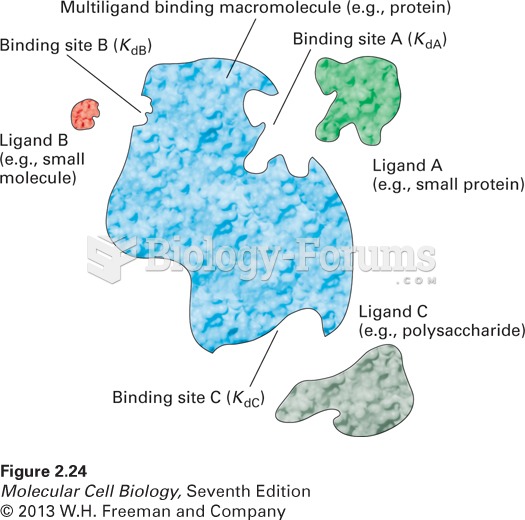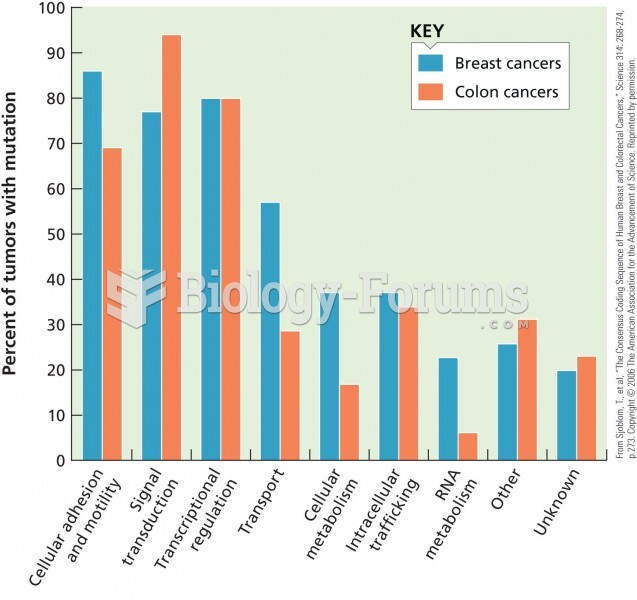|
|
|
Cyanide works by making the human body unable to use oxygen.
In 1864, the first barbiturate (barbituric acid) was synthesized.
Hippocrates noted that blood separates into four differently colored liquids when removed from the body and examined: a pure red liquid mixed with white liquid material with a yellow-colored froth at the top and a black substance that settles underneath; he named these the four humors (for blood, phlegm, yellow bile, and black bile).
As many as 20% of Americans have been infected by the fungus known as Histoplasmosis. While most people are asymptomatic or only have slight symptoms, infection can progress to a rapid and potentially fatal superinfection.
Women are 50% to 75% more likely than men to experience an adverse drug reaction.







